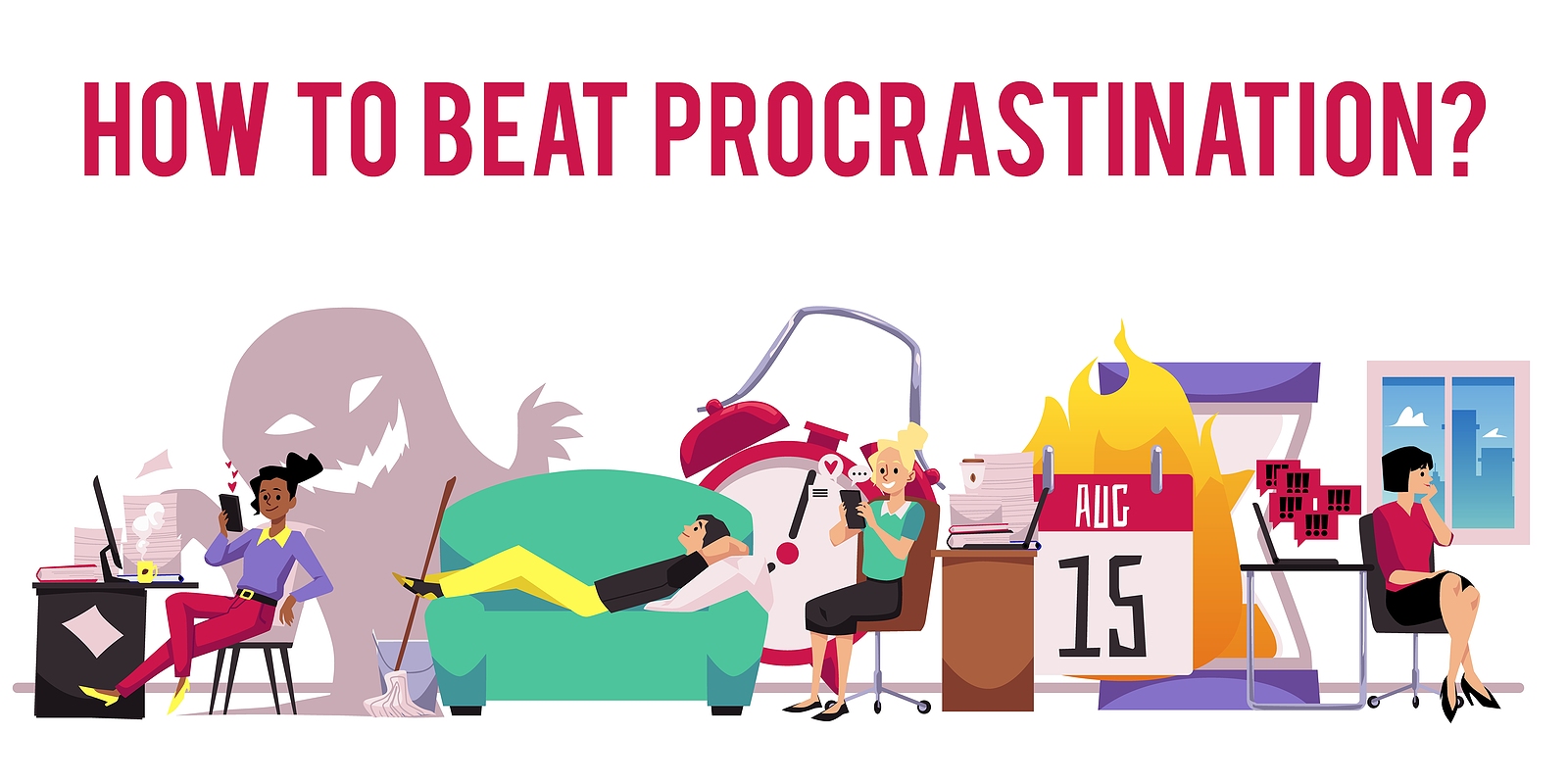Combat Procrastination: 9 Tips to Tackle Difficult Tasks

A looming deadline and you’re fiddling away time tending to the not-so-important tasks. Anxiety builds as you know you should be working, but you keep putting it off. Then, it’s too late, and now you’re even more anxious and wish you got started earlier.
It’s the continuous cycle for a chronic procrastinator – putting things off and facing them only when it’s unavoidable. The very act could be holding you back from great accomplishments.
Don’t let procrastination get the better of you. Acknowledge your difficulty and move forward. Confessing your shortcoming is not an admission of failure as there are many reasons why we procrastinate, including:
- Cultivated habit
- Lack of clarity
- Lack of urgency
- Perfectionism
- No self-control
- Multitasking
- Fear of failure
- Lack of confidence
- Feeling overwhelmed
The problem of procrastination is so deep-seated that a quick-fix approach will not manifest long-term results. It requires a change of thinking which leads to a change of ingrained habits. A solution must include the understanding of why the task is important – clarity- and deliver a sense of gratification throughout the process. Immediate gratification is the reason why we put off critical tasks for less important but satisfying ones. But if you learn to achieve that same gratification from those challenging tasks, you would be more likely to tackle them now.
Below you’ll find some proven solutions to stop procrastinating once and for all.
Set Smaller Goals
The very thought of managing a large task can cause stress and anxiety. But if you break the task into small, manageable goals you’ll make gradual steps until it’s all done. A note-taking app can help you to keep track and organize your work. Breaking the task into smaller pieces is helpful when determining what parts of the tasks you can delegate or outsource. It makes it easier to get started, then brings clarity to who will do what and when.
Assign Priorities to Each Task
Good organization is essential. As you break a large task into smaller ones (above), you’ll now need to clarify priorities for each task to see what task is most important. Prioritization is an excellent anti-procrastination method because you’ll have a visual of what is important vs those unimportant tasks. You can go one step further and create a detailed timeline and deadline for when you will complete each of the smaller tasks to stay motivated and on track.
Track and Execute
The first two steps – setting smaller goals and assigning priorities – will avail nothing if you do not take action. Set your mind to stick to the timeline and execute. A to-do list with daily or weekly steps for those smaller goals is one way to track your work and update others on your progress. Once you begin to check off tasks, it will build confidence and motivation to move forward one small step at a time.
Eliminate Distractions
Eliminate those things in your environment that makes it easy to procrastinate. Phone calls, notifications in your browser or on your phone or tablet, emails, social media, and the television are some of the leading culprits that derail your progress. These distractions are seemingly innocent but they cause stress and anxiety when you need to get things done. As you’re working on distractions, consider also your environment. Does it make you feel inspired or drag you down? Remove the clutter from your desk, open the blinds to get more light, move to a quieter place, and do whatever you need to improve your comfort and inspiration.
Make Decisions Ahead of Time
One of the biggest pitfalls for most procrastinators is a lack of planning. Making decisions in the moment diminishes self-control and energy, which leads to putting off important tasks. For instance, are you going out for lunch or staying in to work? If you know you’re going out, you can aim to get a specific list of things down before you do. If you leave it to chance, you may drag all morning and then leave for lunch without making advancements. Plan ahead and map out each moment of your day, preferably the day before.
Rethink Your Goals
Do your current activities align with your end goal? Sometimes our goals shift as we grow and learn more about ourselves, but our activities do not change to reflect our new purpose. For instance, you develop a love for photography but you’re working as a salesperson. Are you doing something every day to fulfill your love for photography or are you stuck doing something that doesn’t bring joy? Take some time out to rethink your goal and create a plan to do what you love.
Don’t Over-Complicate Things
This point speaks to the perfectionists out there who are likely to put off tasks until everything is perfect. There will never be a perfect situation, and if you wait for one, you’ll never get anything accomplished. Perfectionism is the reason why so many of us delay and ultimately fail of accomplishing our dreams. Just do your best and that will be good enough.
Forgive Yourself
It is better to try and fail than fail to try. Don’t let the feeling of procrastination bring you down. A realization of your tendency to delay may be holding you back from accepting a future challenge. You may embrace a lot of negative thoughts that are far from the truth. You are good enough. You can be productive, confident, and successful. But it all starts with that first step – it is always the hardest, but it’s easy going from there on.
Reward Yourself
It’s always good to reward yourself. The difficult or discouraging tasks don’t seem so bad when there’s a reward at the end. Whether it’s a cup of gourmet coffee, an extended break, shopping, or a new shiny object, you deserve it – and no one knows it better.

